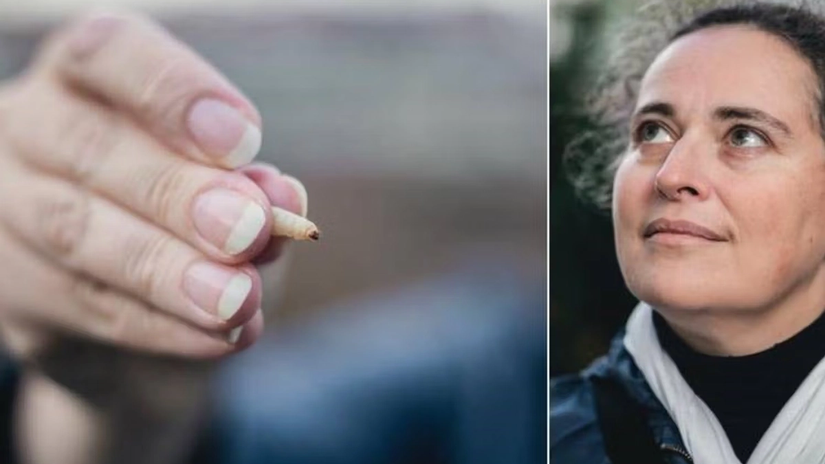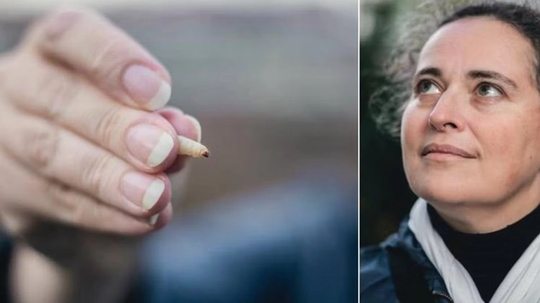EQT Foundation announces EUR 100,000 grant to founder of Norbite to support upcycling plastic waste into healthy feed and food solutions


EQT Foundation is pleased to announce its grant to scientist Nathalie Berezina, founder, CEO and CSO of Norbite, to support their mission to transform unrecyclable plastic waste into sustainable goods by using an insect-based biorefinery. Norbite has developed a proprietary vertical farming technology which enables the insects to perform at industrial scale. The grant totaling EUR 100,000 aims to support further research into the safety of the output of the Norbite process of upcycling mixed plastic waste into healthy protein feed and food solutions.
Established in 2020 by scientist Nathalie Berezina in Stockholm, Sweden, Norbite’s focus has been on improving the rearing of Galleria mellonella larvae and related process solutions on a laboratory scale with promising results. Galleria mellonella possess the extraordinary capacity to digest plastic through their natural metabolism. Going forward, the research focus will be on ensuring that the output (protein and lipids) is free of any harmful substances, given that the larvae digest mixed and dirty plastic waste.
Supporting Norbite means supporting a breakthrough scientific project aiming to yield a regenerative solution to both plastic waste reduction and recycling. Today approximately 90 percent of the total global plastic waste, 400 million tonnes per year, is not being recycled. Global plastic waste is expected to triple by 2060 and poses a huge end-of-life environmental problem and a climate and biodiversity challenge as plastic waste is incinerated, landfilled or left in nature. Norbite’s regenerative and innovative solution to upcycling more than 90 percent of commonly used plastic, saves about 67 percent of CO2 emissions compared to incineration. Current commercial plastics recycling solutions, mechanical and chemical, are unsuitable for mixed and dirty plastic waste as the end-product yields far lower quality, limiting the application of these solutions.
The EQT Foundation Deal Team consisting of Jannis Gerweck, Alva Åqvist and Kerstin Fürnrath will support Nathalie Berezina in scaling impact, by leveraging the expertise, competencies and network within the EQT ecosystem. In addition, EQT Foundation plans to support Norbite in preparing to seek venture funding and industry partnerships, based on successful research results.
“Providing the growing population with necessary goods in the era of scarcity of natural resources is one of the biggest challenges of the coming years”, says scientist Nathalie Berezina, founder, CEO and CSO of Norbite. “One of the approaches to achieve this goal comes from the utilization of what is wasted today and reintroducing those leftovers in a new value chain. The mission of Norbite is tackling the unrecyclable plastic waste and to transform it into sustainable goods through the utilization of specific insects. Our solution is both natural and technological, and many challenges remain, therefore I am particularly happy to receive this support and collaborate with EQT Foundation to benefit from their expertise in the field, strong sustainability commitment and business excellence, which will contribute to bring our solution to a next level and fasten the development of the company.”
“Given global plastic waste is next to climate change, one of the major challenges to a sustainable future for the next generations, we believe that the time is ripe to broaden the set of potential solutions to plastic waste”, says Jannis Gerweck, Director within EQT Private Equity Advisory Team, and Norbite Deal Partner. “Norbite follows an innovative upcycling approach tackling the part of the plastic waste that is un-addressed by today’s solutions. EQT Foundation is ideally positioned to support Nathalie Berezina in her work at such an early stage, enabling crucial research that will be the basis for commercializing Norbite’s solutions and embark on further fundraisings to finance the growth. In addition, the EQT platform provides valuable insights and experience with scaling start-ups and professionalizing management and go-to-market approaches will help Nathalie and the team to tackle the next stage of development.”
Contact
EQT Press Office
[email protected]About EQT
EQT is a purpose-driven global investment organization focused on active ownership strategies. With a Nordic heritage and a global mindset, EQT has a track record of more than three decades of developing companies across multiple geographies, sectors and strategies. EQT has investment strategies covering all phases of a business’ development, from start-up to maturity. EQT has €270 billion in total assets under management (€141 billion in fee-generating assets under management) as of 31 December 2025, within two business segments – Private Capital and Real Assets.
With its roots in the Wallenberg family’s entrepreneurial mindset and philosophy of long-term ownership, EQT is guided by a set of strong values and a distinct corporate culture. EQT manages and advises funds and vehicles that invest across the world with the mission to future-proof companies, generate attractive returns and make a positive impact with everything EQT does.
The EQT AB Group comprises EQT AB (publ) and its direct and indirect subsidiaries, which include general partners and fund managers of EQT funds as well as entities advising EQT funds. EQT has offices in more than 25 countries across Europe, Asia and the Americas and has more than 1,900 employees.
More info: www.eqtgroup.com
Follow EQT on LinkedIn, X, YouTube and Instagram
About Norbite
Norbite transforms plastic waste into sustainable goods by means of an insect-based biorefinery. The selected insects possess the extraordinary capacity to naturally digest plastic. Norbite takes advantage of this feeding specificity and has developed a proprietary vertical farming technology to enable the insects to perform at industrial scale. The insects are used to produce food and feed proteins, antimicrobial peptides to fight bacteria and elicitors that work as vaccines for plants to protect them against pests without using harmful pesticides. Even the dejections of the insects are used as biofertilizers, making this process a great example of a circular business model.
Exclusive News and Insights Every Week
Add your email address below to sign up for our EQT newsletters.
